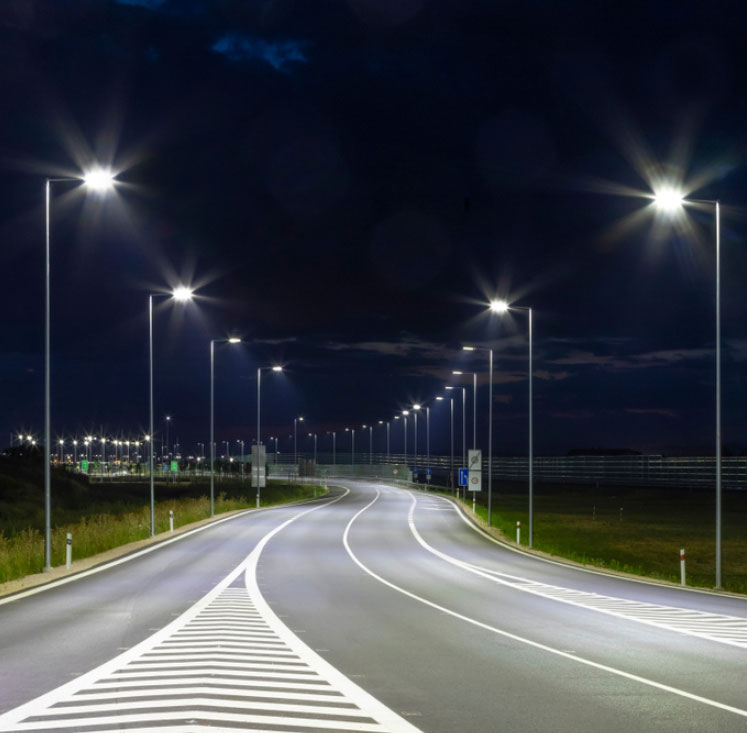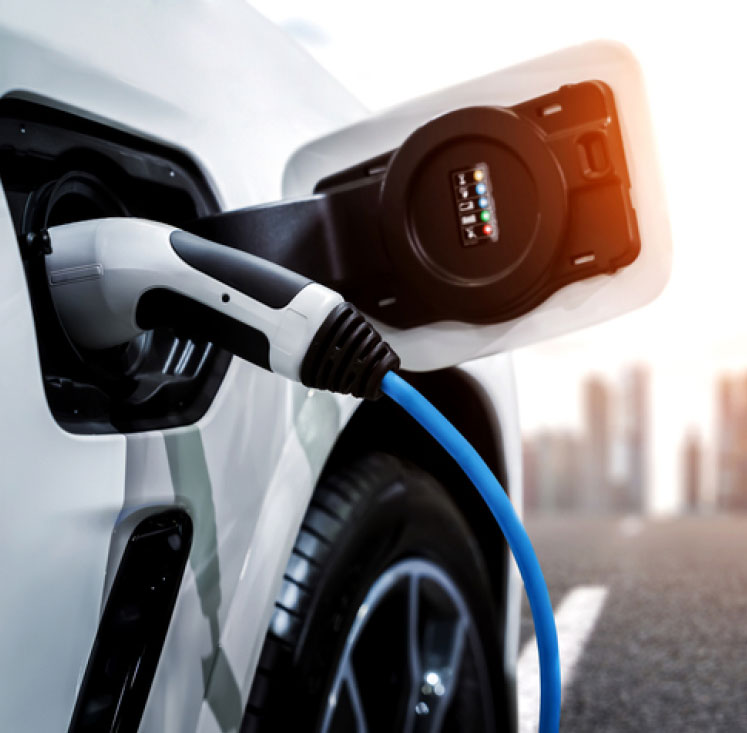Lighting and electricals go hand in hand. So, it only makes sense that we offer electrical design services! We combine our lighting expertise with electrical engineering to provide solutions for an array of more complex projects, from motorway lighting projects to electric vehicle (EV) charging point installations.
Ensuring you don’t get your wires crossed
Whether you’re just upgrading an existing lighting scheme or taking on a whole new installation, you’ll need to think about how it’s all going to work below the surface. That means tackling the highway electrical design, and it’s best if you do so when at the design stage.
Otherwise, if you leave cabling out of your lighting design plans, you could have to pay for new infrastructure to be put in after your lights are in the ground — and that doesn’t come cheap.
So, with our electrical services, we save our clients time, money and unneeded stress with detailed schemes that put this crucial factor of lighting projects front and centre. And if you don’t want to go it alone after this point, we can also provide financial and project management services.
Wondering what kind of support we provide for electrical lighting design? Here’s a taster…
Sparking up ideas
Say you’re installing EV charging stations in a car park. We’ll first work out where the wires that connect these chargers need to go, and then draw up a plan to put the right amount of EV charging spaces in place for your area’s requirements — taking into account the BS 7671 Code of Practice to stay in line with industry standards.
After that, it’s all about suggesting the best solutions for your project’s requirements, including your budget and environmental considerations.
Because our engineers are all trained to the latest regulations and guidance, they’ve got the knowledge needed to get the job done properly. Plus, we’ve got extensive experience in the electrical and EV solution field, so we know how to apply our knowledge onsite. Just what you need to set yourself up for success!
More from DFL
Wondering how else we can help you with your upcoming lighting project? Take a look at our other services...

We do lighting impact assessments (LIAs) day in, day out. They’re usually required to secure planning approval and just so happen to be our speciality. So, you can rest assured we’ll support you with your lighting planning conditions and see your project through to completion.

Get our help planning a new lighting design or upgrading existing lighting infrastructure, like streetlights, for residential areas. We’ll handle everything from electrics and EV charging points to local authority approval!

Looking to create decorative lighting that’s been engineered ‘to a T’? Look no further! Our teams have the creative flair, technical know-how and ability to generate buildable solutions to ensure you achieve a beautiful scheme that accentuates public spaces and attracts passersby day and night.

Get ongoing support and guidance from our friendly lighting experts, who’ll be there to help you every step of the way during your project — perfect for local authorities looking to bridge the skills gap in their street lighting department.

Avoid getting your wires crossed (literally and figuratively) with our electrical design and electric vehicle (EV) charging point services. We’ll show you where and how to place your chargers to give you the best value without running cables everywhere!

We can support your wider team during highway and motorway upgrades and installations; we’re not afraid of big projects! From lighting and electricals to clash detection and the required Building Information Modelling (BIM) standards, our teams can handle it all.






















